From “the new Qaddafi of the United Nations General Assembly” to “a disastrous, nationalistic flop,” early reviews of President Trump’s maiden speech at the U.N. General Assembly (UNGA) have pulled no punches. In 41 minutes that oscillated between belligerence, stridency, and petulance, Trump threatened to “totally destroy North Korea” and asserted that some portions of the world “are going to hell.” He failed to even allude to Moscow’s brazen interference in U.S. and European elections, despite insisting that sovereignty should be the chief organizing principle of global affairs.
But Trump’s discussion of sovereignty was less novel than many commentators have allowed.
At the opening of the first session of UNGA in 1946, President Harry Truman acknowledged fundamental tensions woven into the fabric of the U.N. Charter. “The difficulty,” Truman advised other world leaders, “is that it is easier to get people to agree upon peace as an ideal than to…agree to subject their own acts to the collective judgment of mankind.”
This fundamental struggle—ultimately one between state sovereignty and universal ideals—has persisted throughout the U.N.’s seven decades. Perhaps with the exception of President Nixon—who used his maiden appearance the U.N. in 1969 to vaunt “the integrity of their borders” and nations’ “right to determine their own destiny without outside interference”—recent U.S. presidents have consistently used UNGA’s global pulpit to put their thumb on the scale in favor of universal values.
President Carter argued in 1977 that “the basic thrust of human affairs points toward a more universal demand for fundamental human rights.” President Reagan used his final UNGA speech to ridicule non-interventionist “elite[s]…calling [themselves] revolutionary” while in fact “seek[ing] no real revolution” but instead only “deception…hiding the oldest, most corrupt vice of all: man’s age-old will to power, his lust to control the lives and steal the freedom of others.”
Even the more realist-oriented President George H.W. Bush took up the mantle, calling 1989 “freedom’s moment.”
Signaling his initial focus on domestic affairs, President Clinton in 1993 urged “greater attention and energy on our domestic needs and problems” and “pursuit of self-renewal.” But at his next UNGA, Clinton extolled “humanity’s ancient quest for freedom, to build a world where democracy knows no borders.” Eight years later, and just months after 9/11, President George W. Bush insisted that “there is a current in history and it runs toward freedom.” And despite efforts to distance himself from Bush’s interventionism, President Obama insisted the United States “will always stand up for universal rights.”
At his U.N. debut, President Trump certainly tilted Nixonian, but he did not break with this tradition.
Trump’s criticism of North Korea, Iran, Venezuela, and Cuba—“a small group of rogue regimes”—was in fact consistent with what he called “two core sovereign duties: to respect the interests of their own people and the rights of every other sovereign nation.” Pyongyang, Tehran, Caracas, and Havana, Trump insisted, are violating one or both duties.
On paper, Trump’s conceit of “strong sovereignty” encompasses not only pluralism between states, “let[ting] diverse countries with different values, different cultures, and different dreams…coexist…on the basis of mutual respect,” but also some degree of pluralism within nations, “let[ting] their people take ownership of the future and control their own destiny…allow[ing] individuals to flourish…” This is hardly President George W. Bush’s “freedom agenda.” But it also isn’t your standard Russian, Chinese, and “non-aligned” sovereigntist fare.
Trump’s rhetorical moves are familiar. In 2001, the International Commission on Intervention and State Sovereignty, established in the heyday of global debate on humanitarian intervention, argued that “state sovereignty implies responsibility, and the primary responsibility for the protection of its people lies with the state itself.” Drawing on this and related work, in 2010, Brookings scholars Bruce Jones, Stephen Stedman, and Carlos Pascual urged states to adopt a concept of “responsible sovereignty,” the notion that “sovereignty entails obligations and duties toward other states as well as one’s own citizens,” and that “governments must cooperate across borders to safeguard common resources and tackle common threats.”
To be sure, there were plenty of contradictions in Trump’s speech. “A great reawakening of nations, for the revival of their spirits, their pride, their people, and their patriotism” has, historically, not been a recipe for “harmony and friendship, not conflict and strife.” It is also hard to square Trump’s revised notion of sovereignty with the claim that “we do not expect diverse countries to share the same cultures, traditions, or even systems of government,” particularly when the primary “alternative system” of government—authoritarianism—is inimical to the universal rights enshrined in various U.N. instruments.
Trump’s “strong sovereignty” is likely to flounder for other reasons, too. When the teleprompter goes dark, Trump seems to be an unreconstructed sovereigntist. He has been highly selective in his condemnation of rights-abusing regimes, and even celebrated some of the worst offenders. Second, despite pledges to “work together in…harmony and unity,” Trump’s zero-sum, antagonistic rhetoric has already convinced many world leaders that his overriding project is to enhance U.S. sovereignty almost exclusively at the expense of others. Finally, even if Trump meant—and understood—what he said, “strong sovereignty” must still contend with the enduring critique of those who sought to redefine sovereignty in the aughts: Smuggling liberal values into the definition of sovereignty is a sleight of hand that merely papers over, and hardly resolves, the fundamental tension Truman outlined 71 years ago.
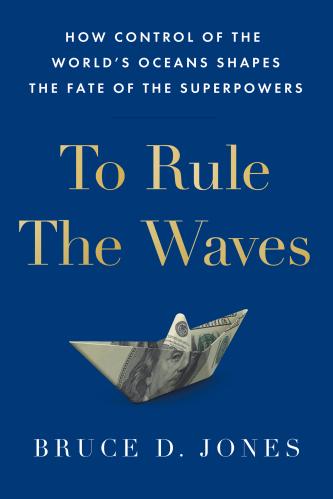

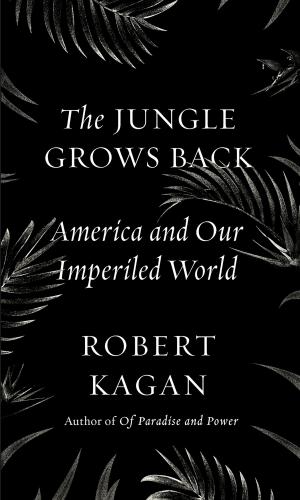
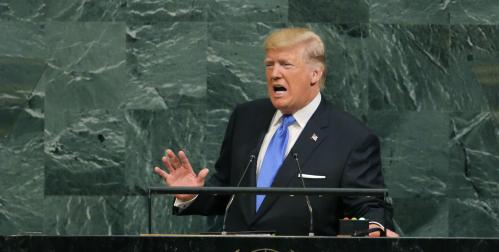
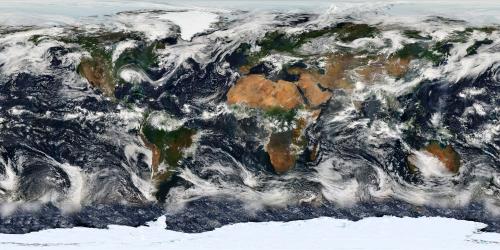

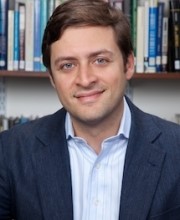


Commentary
Why Trump’s “strong sovereignty” is more familiar than you think
September 20, 2017